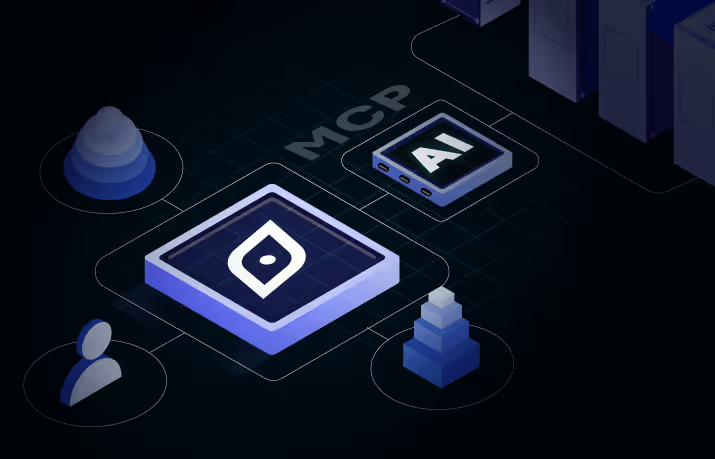Bridging the Cloud Talent Gap Through Upskilling and Reskilling
The uninterrupted deliveries of digital products and services during COVID-19 were only possible due to the rapid cloud adoption by a significant number of enterprises at scale. Today, 9 out of 10 organizations have expedited their cloud adoption and increased cloud investments, motivating the need for upskilling and reskilling cloud talent.
Why Upskilling and Reskilling Cloud Talent Is a Business Imperative
Across industry verticals, companies are going all-in on the cloud by migrating their development and data storage, hosting applications, deploying cloud solutions, or even by building cloud-native services. Cloud is the essential business tool that’s changed how companies work — but it has also also presented some significant challenges.
Rapid Cloud adoption combined with significant global investments has raised the demand for Cloud talent, something the IT industry wasn’t ready to deliver just yet. Skilled, certified cloud and cybersecurity experts are in short supply by as much as 28.5%. This leaves employers stuck with data they cannot utilize and employees resistant to using new technologies. That is why upskilling and reskilling for cloud talent is becoming a necessity.
Emerging job roles including Cloud Migration Specialists, Cloud Infrastructure engineers, Cloud Developers, Cloud Architects, Cloud Support Engineer are required by enterprises to support their “Cloud strategy” but are an effort to find considering the shortage of this talent in the industry.
This article explores how upskilling and reskilling can effectively build this niche talent within the organization and what workforce planning strategy to follow to execute this process.
Cloud Talent Gap Analysis
Due to a substantial increase in cloud adoption by global enterprises, the demand for cloud talent is constantly increasing. However, this demand will soon be met by a talent shortage due to the pre-existing demand-supply gap in the Cloud talent ecosystem. The average gap in the demand and supply of Cloud talent stands at 28.5%.
An analysis of the top four countries adopting cloud indicates that China faces a significant shortage of Cloud talent by 33%, followed by the USA at 31%, India at 30% and Germany by 20%.
Parallelly, increased Cloud adoption is disrupting the traditional IT workforce of companies and making their skills redundant. Traditional IT workflows are being replaced by cloud processes, for which the availability of talent is in short supply, thus motivating upskilling and reskilling for cloud talent.
Benefits of Upskilling and Reskilling in the Post-Pandemic Era
The significance of strategic workforce upskilling and reskilling employees has increased manifold, especially in the current volatile, uncertain, complex, and ambiguous business environment. Companies that do not take this time to reskill their employees will soon find themselves in a vulnerable position.
Upskilling and reskilling provides a range of benefits to employers that help in better operations and help sustain better financials. Some of the prime benefits of upskilling and reskilling include:
- Reduce training and hiring costs by up to 22%.
- Retain company knowledge by reducing attrition and focusing on meaningful projects at hand.
- Provide employees with more options to move into adjacent teams without having to leave the company.
- Improve employee morale by supporting skill upgrade initiatives that are crucial to their job satisfaction.
- Keep stable employment in a volatile job market by developing talent out of talent.
- Encourage upward mobility for ambitious employees who want to move up the career ladder without leaving the company.
- Motivate personal growth by helping employee careers stay relevant through continuous learning & skills acquisition.
Upskilling and reskilling for cloud talent is a win-win for both employers and employees. For employees, it’s equipping them with the necessary cloud skills they need to excel in a cloud-first world. For employers, it’s investing in their talent, which is far more cost-effective than attracting and onboarding new cloud talent.
Upskilling and reskilling Strategy to develop Cloud Talent
Upskilling and reskilling the disrupted IT workforce for Cloud job roles can be an effective strategy for companies to meet the unmet hiring demand of Cloud talent and simultaneously provide viable career paths to IT talent.
With fast-moving economies and rapidly changing business ecosystems already being witnessed, upskilling and reskilling for cloud talent using traditional methods can result in slower transformations, taking more time than usual and leaving less for actual work. Integration of AI into upskilling and reskilling is the need of the hour for organizations.
Artificial intelligence has proven to be revolutionary in practically every industry across numerous use cases. The use of AI in talent management has resulted in the birth of “talent intelligence,” and it has already become one of the most in-demand technologies in most organizations.
Let us look at how talent intelligence can help in shaping a upskilling and reskilling strategy for Cloud talent.
- First, identify disrupted roles and roles that need transformation to the cloud and any related technologies.
- Next, choose the ideal target role using a talent intelligence platform for this individual.
- After you’ve analyzed both sides of the transformation, analyze feasible transitions based on relevant upskilling and reskilling parameters.
- Finally, select suitable L&D programs to facilitate this transition from a disrupted role to an emerging one.
For example, turning a System Administrator into a Cloud Migration Specialist takes about 4-6 months following specific L&D programs, as discussed extensively in this whitepaper.
With further commercialization and market penetration, the cloud is expected to heavily disrupt the existing skills of the IT workforce across all experience levels very shortly.
Upskilling and reskilling is the need of the hour considering the exponential demand-supply gap in Cloud talent, and enterprises that choose to move with upskilling and reskilling would be less likely to face a talent shortage in the coming future.
Draup is an AI-powered talent intelligence platform that delivers HR leaders with data-backed insights into the global talent pool, cost modeling, and reskilling pathways suitable to manage talent faster and drive company-wide upskilling and reskilling initiatives or hire quality talent.










.svg)

















.svg)





.svg)





.svg)
